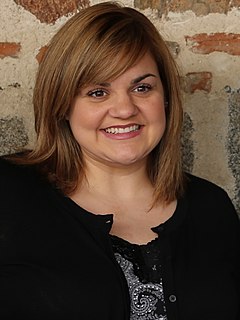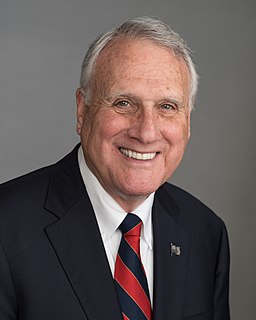A Quote by Rebecca Traister
Look at somebody like Margaret Sanger, who was married young and had kids but then left her husband and wound up living a kind of single life as she got into the founding of what would become Planned Parenthood.
Related Quotes
I wondered about Mrs. Winterbottom and what she meant about living a tiny life. If she didn't like all that baking and cleaning and jumping up to get bottles of nail polish remover and sewing hems, why did she do it? Why didn't she tell them to do some of the things themselves? Maybe she was afraid there would be nothing left for her to do. There would be no need for her and she would become invisible and no one would notice.
I was raised by a single mom who had to put herself through school while looking after two kids. And she worked hard every day and made a lot of sacrifices to make sure we got everything we needed. My grandmother, she started off as a secretary in a bank. She never got a college education, even though she was smart as a whip. And she worked her way up to become a vice president of a local bank, but she hit the glass ceiling. She trained people who would end up becoming her bosses during the course of her career.
But when I realized it was actually going to be this portrait of the artist, birth to death, I had to then discover who Margaret as a young woman would be. I had to find the different voices for her throughout her life. I had a lot of fun discovering that. I had a lot of fun writing the childhood sections. By imagining her childhood, I was able to come up with this voice that matures as she gets older.
After you married, Crispin, she said, my heart was broken. I will not deny it. But I did not slip into a sort of suspended life that would be forever gray and meaningless if you did not somehow come back to me. I put back the pieces of my heart and kept on living. I am not the woman I was when I was in love with you and expecting to marry you. I am not the woman I was when I heard that you were married. I am the woman I have become in the five years since then, and she is a totally different person. I like her. I wish to continue living her life.
It was not the passion that was new to her, it was the yearning adoration. She knew she had always feared it, for it left her helpless; she feared it still, lest if se adored him too much, then she would lose herself, become effaced, and she did not want to be effaced, a slave, like a savage woman. She must not become a slave. She feared her adoration, yet she would not at once fight against it.
She'd assumed she'd be married and have kids by this age, that she would be grooming her own daughter for this, as her friends were doing. She wanted it so much she would dream about it sometimes, and then she would wake up with the skin at her wrists and neck red from the scratchy lace of the wedding gown she'd dreamed of wearing. But she'd never felt anything for the men she'd dated, nothing beyond her own desperation. And her desire to marry wasn't strong enough, would never be strong enough, to allow her to marry a man she didn't love.
A wound in the soul, coming from the rending of the spiritual body, strange as it may seem, gradually closes like a physical wound. And once a deep wound heals over and the edges seem to have knit, a wound in the soul, like a physical wound, can be healed only by the force of life pushing up from inside. This was the way Natasha's wound healed. She thought her life was over. But suddenly her love for her mother showed her that the essence of life - love - was still alive in her. Love awoke, and life awoke.
My father has acted in over 700 films. My mother acted in one film, 'Kismat with Mithun Chakraborty,' in which my father also had a role. My father fell in love with her and would drive her around in his sports car, and they subsequently got married. My mom is the most beautiful woman and I think she has taken some serum to look young all her life.
Everybody goes to clinics, to hospitals, to doctors, and so on. Some people go to Planned Parenthood. But you don't have to go to Planned Parenthood to get your cholesterol or your blood pressure checked. If you want an abortion, you go to Planned Parenthood, and that's well over 90 percent of what Planned Parenthood does.



































